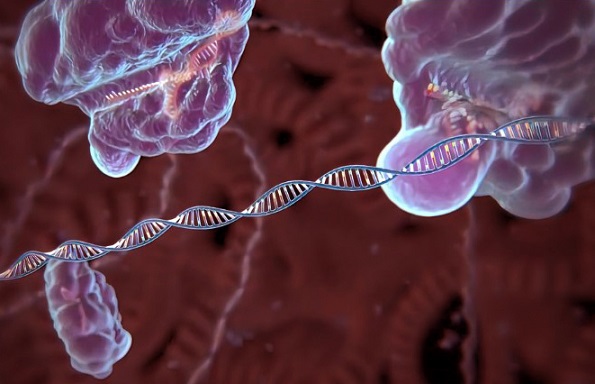Nikhil Prasad Fact checked by:Thailand Medical News Team Sep 23, 2025 5 months, 2 days, 1 hour, 9 minutes ago
Medical News: Caspase 3 Gene Linked to COVID-19 Progression
Researchers from the Center for Research in Therapeutic Innovation Suely Galdino (NUPIT-SG) and the Laboratory of Immunomodulation and New Therapeutic Approaches (LINAT) at Universidade Federal de Pernambuco, Brazil have found that a gene called Caspase 3 may play a decisive role in how COVID-19 develops inside the body. Their findings suggest that this gene, which regulates cell death, is not only linked to the severity of COVID-19 symptoms but could also be targeted in future treatments. This
Medical News report reveals how the discovery could change the way doctors approach both COVID-19 and other viral infections.
 Caspase 3 Gene Could Hold the Key to COVID-19 Management
What Is Caspase 3 and Its Role in COVID-19
Caspase 3 Gene Could Hold the Key to COVID-19 Management
What Is Caspase 3 and Its Role in COVID-19
Caspase 3 is a protein that functions as a trigger for programmed cell death, a process known as apoptosis. Normally, apoptosis is beneficial because it removes damaged or infected cells. However, the study showed that in COVID-19 patients, caspase 3 is overactive. This overactivation leads to excessive tissue damage, disruption of immune cells, and worsened disease outcomes. The research examined 140 blood samples, including 73 from infected patients. Those infected had far higher caspase 3 activity compared to uninfected individuals. Men and patients with higher viral loads showed even stronger levels of the gene, which could explain why these groups often experienced more severe forms of the disease.
Links to Symptoms and Variants
The study demonstrated that higher caspase 3 expression was directly linked to symptoms such as fever, headache, sore throat, runny nose, fatigue, and breathing difficulties. Patients with hypertension also had elevated activity of the gene. Importantly, people infected with the Omicron variant displayed greater caspase 3 expression compared to those infected with the earlier P.1 variant. This suggests that even as variants evolve, they may still exploit the same biological pathways to damage the body.
Damage to the Immune System
The researchers also observed increased activity of caspase 3 and caspase 7 in CD4+ T cells and B cells—two essential types of immune cells. This means that the immune system itself was being weakened by the overactivation of cell death processes. The destruction of these vital immune cells helps explain why some patients developed more serious infections or long-term complications associated with long COVID.
Why the Findings Are Important
Targeting caspase 3 could represent a new way to treat viral infections. By controlling its activity, doctors could potentially limit the tissue damage caused by excessive cell death without blocking the body’s natural ability to fight the virus. The study also highlights the importance of balancing apoptosis with autophagy, the body’s system for clearing damaged material and pathogens. Managing both processes may reduce viral replication and improve patient outcomes.
;Conclusion
The study strongly indicates that caspase 3 is not just a marker of cell damage but an active driver of severe disease in COVID-19. Its role in worsening symptoms, weakening immunity, and responding differently to viral variants makes it a promising target for future therapies. If treatments can be developed to regulate caspase 3 safely, they could help prevent complications, save lives, and prepare humanity for future pandemics where similar pathways are exploited by viruses. Further research is essential, but this discovery provides a critical direction for developing innovative treatments that go beyond vaccines and traditional antiviral drugs.
The study findings were published in the peer reviewed journal: Clinical Immunology Communications
https://www.sciencedirect.com/science/article/pii/S2772613425000162
For the latest COVID-19 News, keep on logging to Thailand Medical News.
Read Also:
https://www.thailandmedical.news/news/french-and-italian-researchers-unveil-the-role-of-caspase-1-in-covid-19-associated-lung-injury
https://www.thailandmedical.news/news/covid-19-news-university-of-texas-study-finds-that-pannexin-1-channels,-atp-and-purinergic-receptors-play-key-roles-in-sars-cov-2-pathogenesis
https://www.thailandmedical.news/news/many-are-unaware-that-covid-19-induced-panoptosis-is-slowly-killing-them-despite-having-only-mild-infections
